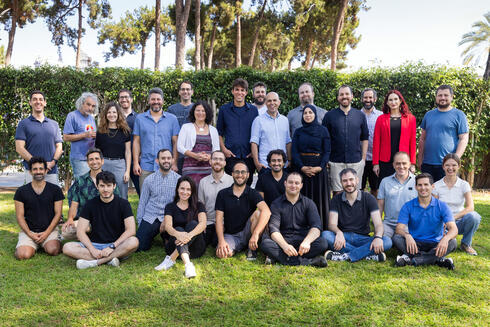QEDMA, a Tel Aviv–based quantum computing startup, announced a $26 million Series A funding round led by Glilot Capital Partners and joined by IBM and Korean Investment Partners. The new capital will help QEDMA refine its software tools that cut error rates on today’s quantum machines and shorten the path to useful quantum applications.
Funding Round Details
Investors showed strong confidence in QEDMA’s software approach to quantum error control. Glilot Capital Partners led the round, while IBM and Korean Investment Partners joined as strategic backers. The cash infusion will support product development, customer outreach, and growth of QEDMA’s engineering team. For a firm founded in 2020, this level of support highlights demand for solutions that make noisy quantum computers more reliable.
Technology That Tackles Quantum Noise
The core of QEDMA’s offering is QESEM (Quantum Error Suppression and Error Mitigation). This software learns the specific noise patterns of each quantum processing unit (QPU) and adjusts algorithms in two key ways. First, it suppresses errors before circuits run. Then it filters out remaining noise from raw results. QEDMA says QESEM can expand the size of quantum calculations by up to 1,000 times compared to running without error controls. That boost brings real‑world quantum tasks closer to today’s hardware limits.
The company integrates its tools directly into IBM’s Qiskit Functions Catalog, and trials on IBM’s Eagle‑series QPUs have shown the largest noise reduction ever recorded in utility‑scale tests. These strong results prove that software layers can unlock hardware potential without waiting years for fully fault‑tolerant quantum systems to arrive.
IBM’s Strategic Investment Role
IBM’s participation goes beyond a simple check. As part of its dual strategy to build both hardware and software ecosystems, IBM has backed QEDMA to strengthen its quantum offerings. Jay Gambetta, IBM’s VP of Quantum, noted that collaborating with error‑focused startups lets IBM move faster on its 2029 goal for a fault‑tolerant machine. In practice, QEDMA’s code sits alongside other IBM‑approved modules in Qiskit, giving developers easy access to noise control routines as they design quantum workflows.
Founding Team’s Deep Physics Roots
Three co‑founders with strong academic and defense research backgrounds drive QEDMA’s vision. Dr. Asif Sinay, CEO, earned a PhD in complex systems and quantum physics from the Weizmann Institute and cut his teeth at Magic Leap. Prof. Dorit Aharonov, Chief Scientific Officer, did the foundational work on the quantum fault tolerance theorem at Hebrew University. Prof. Netanel Lindner, Chief Technology Officer, brings expertise in large quantum systems from his Technion work. Their combined insights helped shape QESEM’s design to match both theory and the messy reality of hardware noise.
Market Impact and Future Outlook

As more firms pilot quantum projects, error control software will decide who gains practical advantage first. QEDMA’s tools answer a wide range of use cases, from chemistry simulations to optimization tasks that classical computers struggle to handle. By boosting fidelity on existing QPUs, organizations can test quantum workflows today rather than wait for next‑generation machines. The new funding will let QEDMA scale customer support and expand its suite of noise‑resilience products.
Personal Analysis
Seeing QEDMA’s rapid progress prompts optimism. Software fixes like QESEM let us work around hardware limits and get meaningful results on current devices. That pragmatic approach speeds experimentation for firms eager to explore quantum’s promise. IBM’s backing further validates this path and hints that major players will continue to partner with nimble startups. Keep an eye on QEDMA as it moves from tests into real industry trials. Success here could set a pattern for future quantum software ventures to follow.
Sources: CTech

